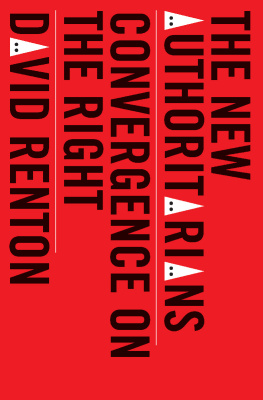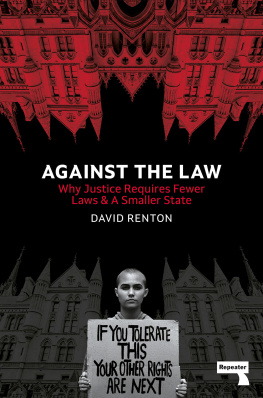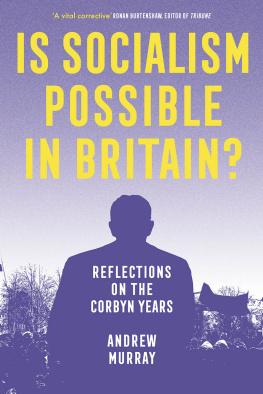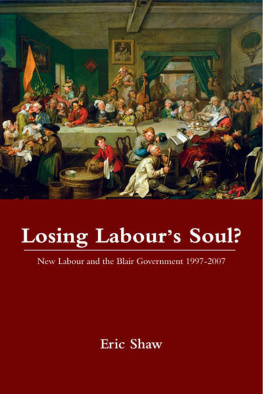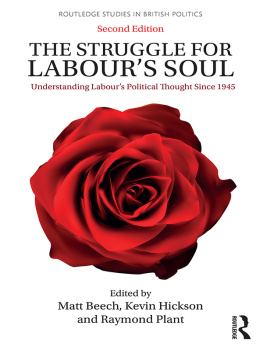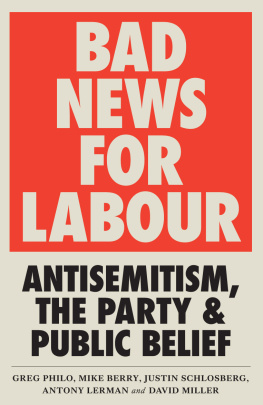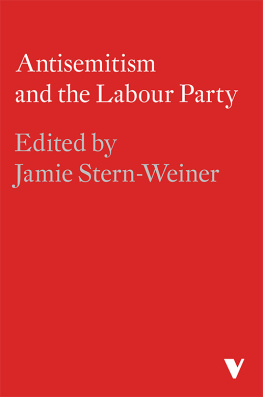
Labours Antisemitism Crisis
Between 2015 and 2020 the Labour Party was riven by allegations that the party had tolerated antisemitism.
For the Labour right, and some in the media, the fact that such allegations could be made was proof of a moral collapse under Jeremy Corbyns leadership. Sections of the left, meanwhile, sought to resist the accusations by claiming that the numbers of people accused of racism were few, that the allegations were an orchestrated attack, and that those found guilty were excluded from the party. This important book by one of Britains leading historians of anti-fascism gives a more detailed account than any yet published of what went wrong in Labour. Renton rejects those on the right who sought to exploit the issue for factional advantage. He also criticises those of his comrades on the left who were ignorant about what most British Jews think and demonstrated a willingness to antagonise them.
This book will appeal to anyone who cares about antisemitism or left-wing politics.
David Renton is a British historian and barrister. His other books include No Free Speech for Fascists: Exploring No Platform in History, Law and Politics (Routledge 2021) and Never Again: Rock against Racism and the Anti-Nazi League 19761982 (Routledge 2019).
Labours Antisemitism Crisis
What the Left Got Wrong and How to Learn From It
David Renton
First published 2022
by Routledge
2 Park Square, Milton Park, Abingdon, Oxon OX14 4RN
and by Routledge
605 Third Avenue, New York, NY 10158
Routledge is an imprint of the Taylor & Francis Group, an informa business
2022 David Renton
The right of David Renton to be identified as author of this work has been asserted by him in accordance with sections 77 and 78 of the Copyright, Designs and Patents Act 1988.
All rights reserved. No part of this book may be reprinted or reproduced or utilised in any form or by any electronic, mechanical, or other means, now known or hereafter invented, including photocopying and recording, or in any information storage or retrieval system, without permission in writing from the publishers.
Trademark notice: Product or corporate names may be trademarks or registered trademarks, and are used only for identification and explanation without intent to infringe.
British Library Cataloguing-in-Publication Data
A catalogue record for this book is available from the British Library
Library of Congress Cataloging-in-Publication Data
Names: Renton, Dave, 1972 author.
Title: Labours antisemitism crisis: what the left got wrong and
how to learn from it / David Renton.
Description: Abingdon, Oxon; New York, NY: Routledge, 2022. |
Includes bibliographical references and index.
Identifiers: LCCN 2021006986 (print) | LCCN 2021006987 (ebook) |
ISBN 9780367722159 (hardback) | ISBN 9780367720568 (paperback) |
ISBN 9781003153917 (ebook)
Classification: LCC JN1129.L32 R46 2022 (print) |
LCC JN1129.L32 (ebook) | DDC 305.892/4041dc23
LC record available at https://lccn.loc.gov/2021006986
LC ebook record available at https://lccn.loc.gov/202100698
ISBN: 978-0-367-72215-9 (hbk)
ISBN: 978-0-367-72056-8 (pbk)
ISBN: 978-1-003-15391-7 (ebk)
Typeset in Bembo
by Newgen Publishing UK
Contents
I began writing this book in summer 2020. The report of the Equality and Human Rights Commission (EHRC) into antisemitism within the Labour Party was expected imminently. But the set of possible absences from the report had to be wider than that. I rejected the instinct of many Corbyn supporters to assume the worst of the Commission. Accordingly, I decided to remind myself of the key events of the crisis, both the episodes of which the Labour left spoke often and the ones that we tried our hardest to ignore. I drew up a one-page chronology. That document went through a second draft and a third. No matter how much I added, I found that there were extra depths to the story which I had not yet measured. My short chronology became an essay, and still there was more to think about. The narrative grew, until it became this book.
I had been asked to write the piece as a lawyer which brings us to one of the themes of the crisis. Many supporters of Jeremy Corbyns former leadership were determined to see Labours main problem as one of process; in other words, if only complaints had been investigated more quickly and more thoroughly, the scale of the problem would have become clearer and it would have been apparent to anyone watching that in fact only a tiny minority of members of the Labour Party had said anything offensive. On the right, there was a similar fixation on procedure, except that the narrative promoted by the critics of Corbyns leadership insisted that he and his allies had been slow to address the problem and over-concerned with protecting other leftists. They had the significant advantage of having a much simpler story to tell. Corbyn was incapable of addressing the problem, the Labour right said, because of his opposition to Israel.
As the remainder of this book sets out, I find each of these narratives unconvincing. The lefts account tends to minimise the problem of anti-Jewish racism inside Labour while the right ignores the problem outside. The rest of this book shows how those mistakes arise. In this Preface, I ask readers to note only the way in which the question, Have members of the Labour Party said hurtful things about Jews? changed into, Does the Labour Party have adequate structures to investigate whether members have been antisemitic? Both sides, it seemed, wanted there to be a legal answer to what was at its heart a political dispute.
When the editor of Labour Hub approached me, I imagine he was looking for a Corbyn-friendly lawyer to write something reflective. I was suggested to him as a member of the Haldane Society of Socialist Lawyers who has spent more than a decade representing workers and tenants in discrimination claims. (many of whose regular contributors later joined the pro-Corbyn group, Jewish Voice for Labour [JVL]). Further, over the past 20 years I have written numerous books about fascism and anti-fascism.
Fitting this legacy together, some readers may be hoping that the narrative which follows takes sides, excoriating Corbyns critics in every instance and giving the Labour left a clean bill of health. Anyone hoping for that that will be disappointed. You also need to know that the past four years I have been arguing with anyone who will listen that the left has tolerated antisemitism, or at least a mindset which comes close to antisemitism an ignorance about what most British Jews think combined with an indifference to the prospect of antagonising them.
I have seen that attitude when an acquaintance with a 40-year history of activism in left-wing Jewish and anti-Zionist circles, sought to explain to me that British Jews were a privileged white community and therefore by definition the left would waste any time it spent seeking any kind of dialogue with them. I have seen it when friends I have known for years, and who are finely attuned to other forms of discrimination, shared defences of antisemitic images which were themselves cut and pasted from David Ickes website. I have also encountered it in the refusal of other friends to accept that any of the incidents described in this book crossed any sort of line.



